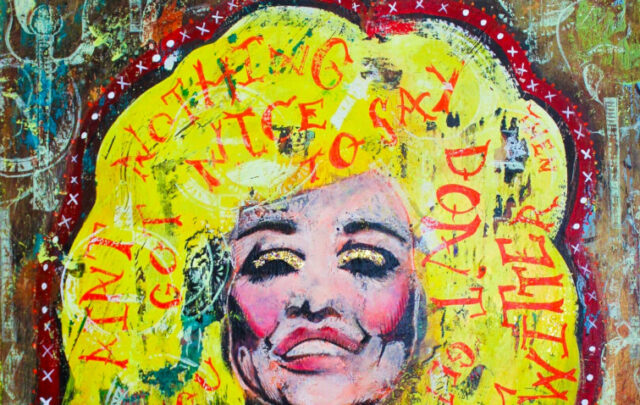Initiated by the German NGO Soup&Socks, Habibi.Works is a FabLab equipped with all the tools for people to unfold their potential and hone their abilities. It is a place to illustrate talent, gain new skills and build.
What makes this place truly unique, however, is that most of the inventors come from Syria, Iraq and Afghanistan, and are currently living across the road from Habibi.works at the refugee camp of Katsikas, Greece.

Over the summer, the camp hosted 1000 souls in poor living conditions, leading the refugees to protest the local government. Currently, about 400 people live in the camp with approximately a third of them being children.

The Habibi.Works team arrived in Greece to provide support in an escalating humanitarian crisis. It seeks to expand on the concept of FabLabs and empower people in a limbo situation. Meaning “my love” in Arabic, Habibi.Works has become, most of all, a meeting place where refugees, locals, and international experts creatively collaborate around artefacts and perspectives, combining their knowledge and sharing their expertise. There are adults fixing the bikes of the children from the camp, youngsters going equipped with power drills to assist in building beds, men and women using the sewing machines to repair or create clothes, whilst the laser cutter is warming up for when the workshop students finish their designs. That is, after having cleaned the dishes of the lunch that was collaboratively prepared. It is a dynamic, often fast-paced environment, where the result of learning and working is seen all around the warehouse and in people`s optimistic attitude. According to the team, the goals of Habibi.Works are to:
- Get active and creative, teach others, learn and do something meaningful
- Create objects which improve your living conditions in the camp
- Manufacture products and seek ways to generate money which could benefit the whole camp
- Involve Greek citizens to improve their understanding of the situation
- Raise awareness and make a political statement about refugees’ needs and demands
Activities
Habibi.Works is comprised of 7 workshops which cover a wide spectrum of activities:
Kitchen
The Habibi Kitchen is a community kitchen where people cook for and with each other whatever they desire. Being able to decide, even if it is just what to eat, is a way to support the people with self-determination, and considering the number of people that the activity brings, definitely a good step towards building a community.

Carpentry
During the first days of Habibi.Works, this was the main workshop activity, generating all the walls, shelves and tables which outfit the impressive 700 square meters place. Over time, novel ideas by the people become reality and contributed to the improvement of living conditions in the camp.

Screen Printing Atelier
Handwritten on the back of a t-shirt is “CRonaldo7”. On its front, the face of a girl. The Screen Printing Atelier uses creatively a number of materials in order to provide a market of sorts. It presents the creativity of the people involved to the world, through the communion of locals and several artists living in the Camp.

The Metal Workshop
Having been just set up, three refugees are focusing their efforts to create a weightlifting machine, which ought to be the first of many more promising projects.

The Creative Atelier
In the creative space of Habibi.Works one may find sewing machines, equipment for jewellery and painting and many other materials that offer the possibility to create items that are both useful and beautiful.

Habibi.Studios
Radio, music and recording workshops form part of this area of Habibi.Works. One of the young men in the Camp is a professional opera singer, others are gifted musicians. Music sessions have been set up in the studio of Habibi.Works. Another outstanding project is the Radio Workshop, where people from three different Camps in the Epirus region will meet to get their voices heard and raise awareness on their situation.

The Media Lab
Experts and beginners are both welcome. Whether it is about coding, basic computer knowledge, generating fancy artefacts with the laser cutter or learning how to use a 3D-printer – there are plenty of reasons to get excited.

Engaging local society
From the beginning the Habibi.Works team strived to incorporate the people from the camp into the organisational structure so that their work might be continued after their departure.
Local initiatives and individuals are getting involved since it provides a more accessible platform for people to come together. Despite the ephemeral nature of the team’s involvement, Habibi.Works aims at becoming something more than just aid by involving of people from the nearby capital of the region, Ioannina and its big student community. An important step for the integration of the refugees and the mutual understanding and appreciation.
In this context, P2P Lab and Habibi.Works have joined forces with the aim to manufacture an open source house. Following recent events, it has become more evident than ever that housing is one of the most important issues faced by the refugees. This project attempts to provide a more viable and permanent solution by utilising shared information on the designs of a house, the available equipment of the Habibi.Works and the refugees themselves.
Support Habibi.Works
Ultimately, the Habibi.Works experience in Katsikas adds to the raising of awareness on the impossible situation refugees find themselves all over Europe and illustrates how people contribute to its amelioration through collaborative projects.
Feel free to make your contribution and become part of this innovative project. If you want to join the effort, contact them, donate funds or tools.
More details can be found at Habibi.Works website.

Photos by Jennifer Mallmann, Henri Shabani, Rob Timmerman, Andrea Sánchez Brox, Louis Dowse, Kat, Florian Horsch, Manuel Seifried, Mathias Horsch und Anna Innocenti.
Many thanks to Francisco Santos for his help in this post.





